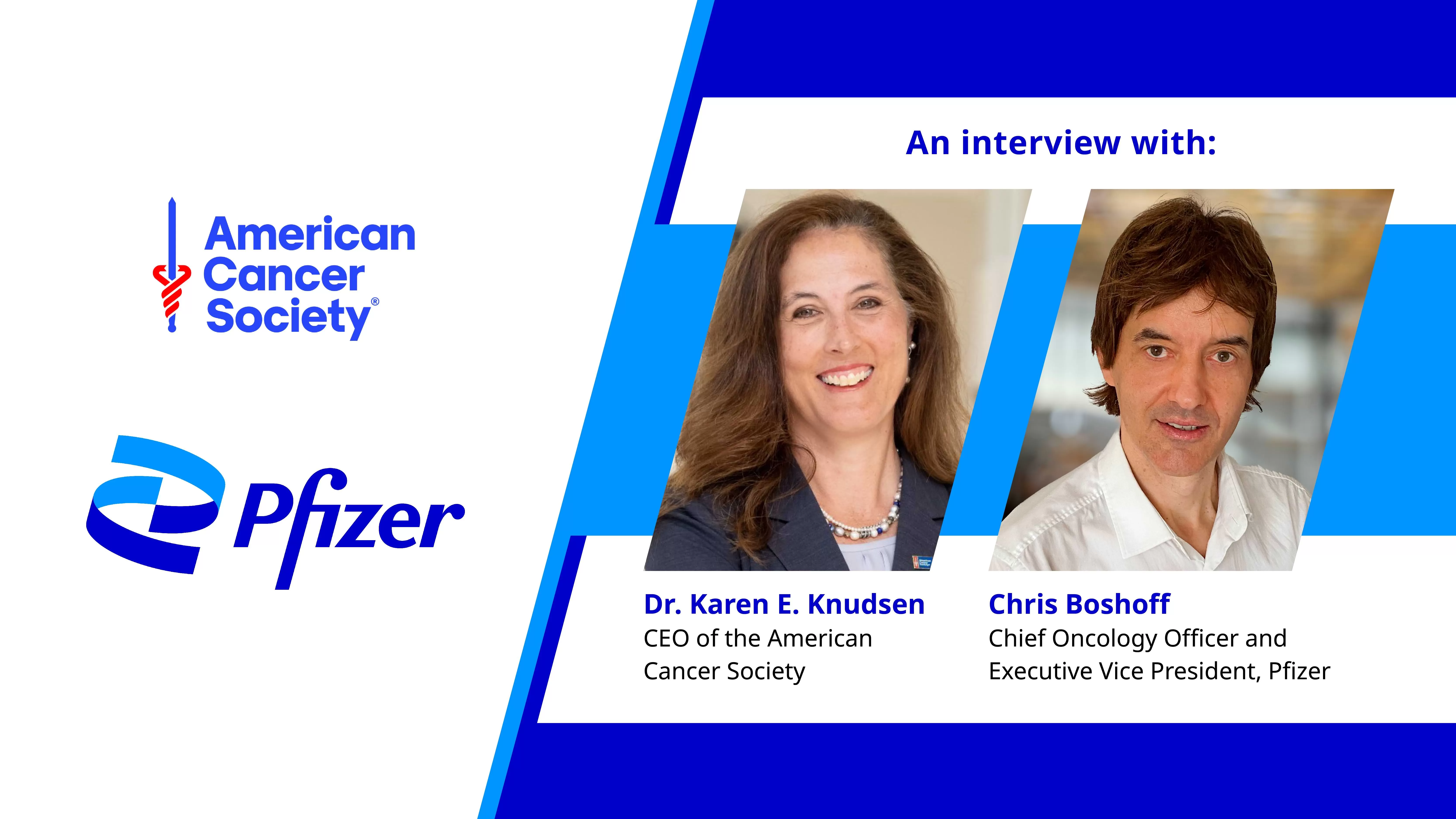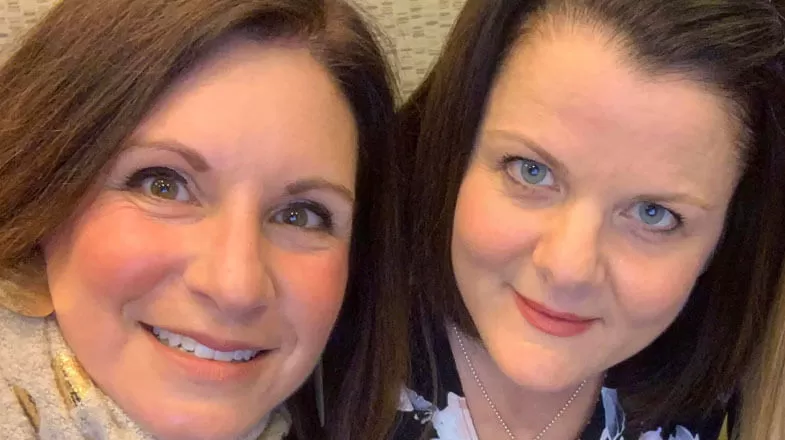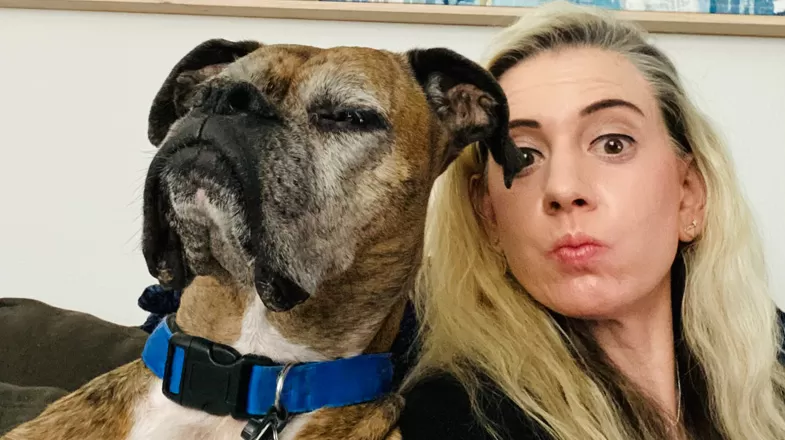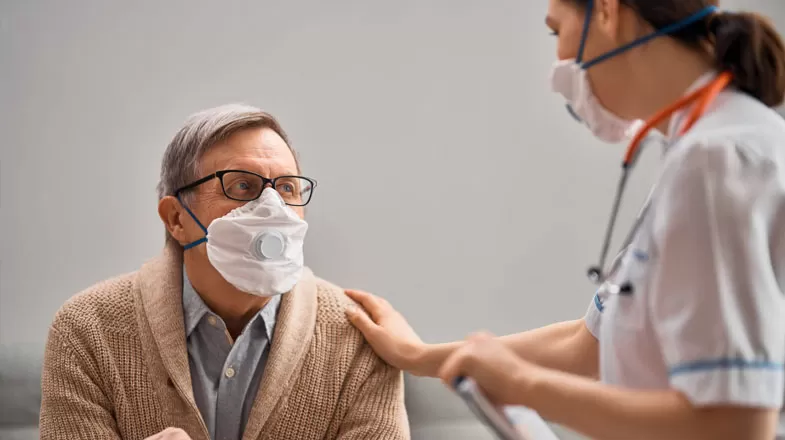Cancer Articles
Featured Articles
Read our latest stories on the people and scientific innovations making a difference in patients’ lives.

Real People
Advocacy, Strength, and Hope in the Face of Metastatic Melanoma: Bruce and Chris's Story
In 2013, Bruce’s life changed. He was living in sunny Florida with Chris, his wife of over 20 years, when he received an unexpected diagnosis: metastatic melanoma—the most aggressive form of skin cancer.1,2It was a disease Bruce had heard of before—a disease that will impact over 100,000 people in the U.S. this year and 510,000 people across the world by 2040.2,3 But it didn’t cross his mind when he noticed a small lesion on the top of his foot. Chris encouraged Bruce to get it checked out. In...

Trusted Voices
Together We Can Change the Odds for People with Cancer
One in three people in the United States will receive a cancer diagnosis in their lifetime.i This means you, or someone you know, may someday be impacted. This disease does not discriminate. Unfortunately, many people face unnecessary barriers to timely and equitable screening, treatment and support. To help close these gaps, the American Cancer Society (ACS) and Pfizer recently launched a new three-year initiative, “Change the Odds: Uniting to Improve Cancer Outcomes,” aimed at addressing...

Purpose & Ideals
Cancer Survivors' 'Butterfly Club' Network Fosters Support and Partnership
For many cancer survivors, life splits into two stages: before cancer and after cancer. That’s been the case for Lynette Bojko, Pfizer’s Head of Strategic Sourcing & Business Management. She was diagnosed with breast cancer just before her 40th birthday. “Unfortunately or fortunately, cancer is a lot of my identity,” she says. When treatment began, she didn’t want to hide what she was going through at the office, so she talked about it. That openness allowed her to connect with colleagues who...

Real People
The Butterfly Club: Stories of Volunteers that Colleagues with Cancer Can Lean On
When Nikki Shaffer was diagnosed with breast cancer at 35, she had so many questions. How should she tell her three young children about it? Should she keep working? Would she see her kids grow up?That was in 2009. As Shaffer went through treatment, a non-profit connected her with other cancer survivors, but she didn’t click with anyone. “They connected me to people who were in their 50s when they were diagnosed, and their questions and their concerns were not the same as mine,” says Shaffer...

Real People
'I Choose to Be Positive': A Metastatic Melanoma Story Guided by Hope
In 2010, Mindi noticed that a mole on the left side of her chest was bleeding. She felt concerned, but not panicked; after all, the air outside in Salt Lake City, UT had been dry, the 22-year-old reasoned. It could just be dry skin. Still, she wanted to take the proper precautions, so she made an appointment with a dermatologist. When the doctor suggested they take a wait-and-see approach, Mindi wasn't comfortable with it. She wanted to be proactive. "I know my body best," she says. "My gut...

Real People
Equitable Access to Multiple Myeloma Treatments Can Help Close the Survival Gap
Jennifer Flowers thought her pain and fatigue were a side effect of working out. Perhaps she’d pushed herself too hard or strained a muscle. But the pain persisted, so she scheduled an appointment with her doctor. Her diagnosis—multiple myeloma, a type of blood cancer—was unexpected. “I was stunned,” Flowers says. “I’m a health-conscious professional and was exercising multiple times a week.” Her first thought, Flowers says, was “How long do I have to live?” Medical Innovations Extend...

Purpose & Ideals
Equity in Advanced Prostate Cancer Care Begins with Changing the Conversation
Prostate health is not a popular topic of conversation. Even in healthcare settings, patients and providers might be hesitant to discuss prostate health or cancer screening. But talking openly is not only the key to destigmatizing an important topic, it’s one of the first steps in addressing global health inequities that impact those diagnosed with prostate cancer.“In the past 10 years, we have seen advances in the treatment of advanced prostate cancer (aPC), but some people are still being left...

Science & Innovation
Cancer Biomarkers: Paving the Way for Better Lung Cancer Treatment
Receiving a lung cancer diagnosis may inspire a lot of questions: Will my cancer spread? What are the best treatment options for my type of lung cancer? How well do treatments work?There are no one-size-fits-all answers to questions about lung cancer—and that can be a good thing. Scientific advances have led to the practice of “precision medicine” or treatments tailored to patients based on the genes and proteins found in their tumor. In cancer treatment, it involves looking at changes in the...

Purpose & Ideals
Improving Metastatic Breast Cancer Care for Underserved Populations
Globally, breast cancer continues to be the most common invasive cancer in women, and one of the most common forms of cancer overall.1 While significant advances have been achieved, especially in metastatic disease, challenges beyond treatments remain, especially disparities created by structural, socioeconomic, socio-environmental, and biological factors. A recent 2021 publication reveals both the challenges facing underserved patient populations with metastatic breast cancer (mBC) in Europe...

Living & Wellbeing
Understanding Healthcare Disparities in Colorectal Cancer
In the United States, an estimated 147,950 people were diagnosed with cancer of the colon or rectum in 2020. It is one of the most highly diagnosed cancers in the US, with 12 percent of cases diagnosed in people under the age of 50.[i] Additionally, more than 20 percent of Americans with colorectal cancer have metastatic disease at diagnosis. Metastatic disease means the cancer has already begun to spread to other parts of the body.[ii] The COVID-19 pandemic has revealed flaws within healthcare...

Living & Wellbeing
Know the Mutational Status of Your Cancer: Biomarker Testing in Metastatic Melanoma and Metastatic Colorectal Cancer
If you’ve recently been diagnosed with metastatic melanoma or metastatic colorectal cancer, chances are you’ve had to familiarize yourself with a lot of new terms and complicated concepts. One term you may not have heard before is “biomarker.” As researchers learn more about how cancer cells develop, grow, and spread, more attention is being paid to the role biomarkers play in these processes. For patients, undergoing biomarker testing helps their doctor/healthcare team determine whether or not...

6 Ways to Help Manage Stress After a Breast Cancer Diagnosis
Pfizer’s Chief Patient Officer, Dr. Freda Lewis-Hall, is partnering with other top health experts for the best tips on how to Get Healthy, Stay Healthy. Originally posted on Thrive Global.When you’re faced with a breast cancer diagnosis, stress levels can quickly reach an all-time high. Uncertainties about the future, worrying about treatment plans, balancing work, finances, and the sheer number of questions that occupy your mind can all play a role in building up this stress. And while there’s...
Media Resources & Contact Information
Anyone may view our press releases, press statements, and press kits. However, to ensure that customers, investors, and others receive the appropriate attention, Pfizer Media Contacts may only respond to calls and emails from professional journalists.
